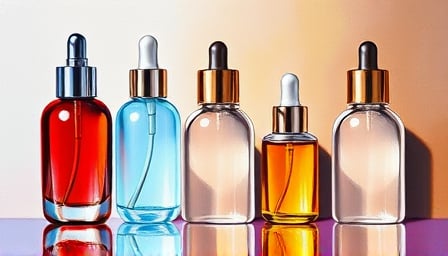Market Surge in the Beauty and Healthcare Sector
In a remarkable turn of events, the beauty and healthcare sector has defied market trends, witnessing a significant surge. On May 15, 2025, amidst a general downturn in the A-share market, the beauty and healthcare sector soared by 3.68%. Notably, companies such as Qingsong Group, Huayi Fragrance, and Jieya Group saw their stock prices jump by over 20%, with firms like Fureida, LaFang Household Chemicals, and Wanmei Biotechnology hitting the daily price limit.
Driving Forces Behind the Surge
Several factors have contributed to this unexpected rally. Firstly, the resurgence of domestic brands in the beauty and healthcare sector has sparked intense competition with international counterparts. This is exemplified by the debut of Chinese medical beauty brands at the Melbourne “Mind, Body, and Spirit Festival,” where products like hyaluronic acid and collagen from companies such as MeiXie Biotechnology and Aimee Client garnered international attention.
Secondly, the 618 online shopping festival, coinciding with Mother’s Day, has significantly boosted consumer spending in the beauty and healthcare sector. Major e-commerce platforms like Tmall, Douyin, and JD.com have launched extensive promotions, further stimulating market activity.
Additionally, recent policy announcements aimed at expanding service consumption and nurturing new types of consumption have provided a favorable backdrop for the sector. The easing of certain tariffs between China and the U.S. has also positively impacted export-oriented companies within the industry.
Valuation and Future Outlook
Currently, the valuation of the beauty and healthcare sector is at a relatively low point, with a Price-to-Earnings (P/E) ratio of 39, below the five-year median of 43. This, coupled with improving earnings among listed companies, suggests potential for both earnings and valuation growth.
Spotlight on Anti-Aging Ingredients
The concept of “methylsulfonylmethane” (MSM) has emerged as a hot topic, with companies like Chuanning Biotechnology, Tuoxin Pharmaceutical, and Fureida experiencing significant stock price increases. This interest was sparked by a controversial advertisement from Kelong Pharmaceutical, featuring its 75-year-old chairman, Liu Gexin, as the brand ambassador for MSM capsules. MSM, a rare compound derived from L-histidine, is known for its antioxidant, neuroprotective, anti-aging, and skin care benefits. It is primarily obtained from edible mushrooms and can also be synthesized through biotechnological methods.
Market Dynamics and Analyst Insights
The anti-aging market, distinct from the silver economy, focuses on delaying the aging process across all age groups, not just the elderly. With the anti-aging industry’s market size in China estimated at 600 billion yuan in 2024, it is expected to grow to 4.6 trillion yuan by 2035, capturing a larger share of the silver economy market.
In summary, the beauty and healthcare sector’s recent performance highlights the dynamic interplay of domestic brand strength, consumer trends, policy support, and innovative product development. As the sector continues to evolve, it presents promising opportunities for investors and companies alike.
